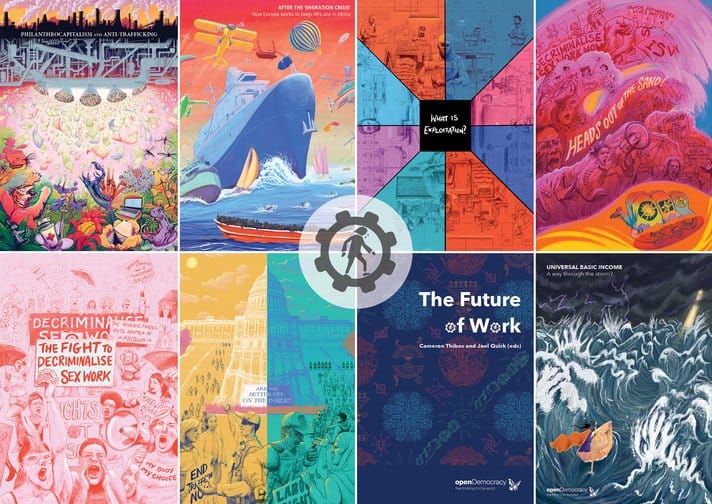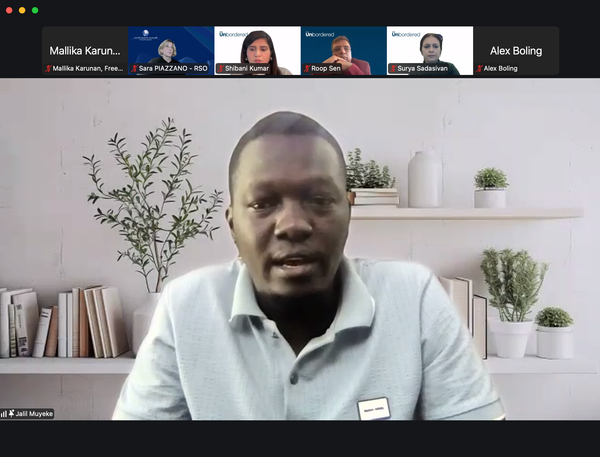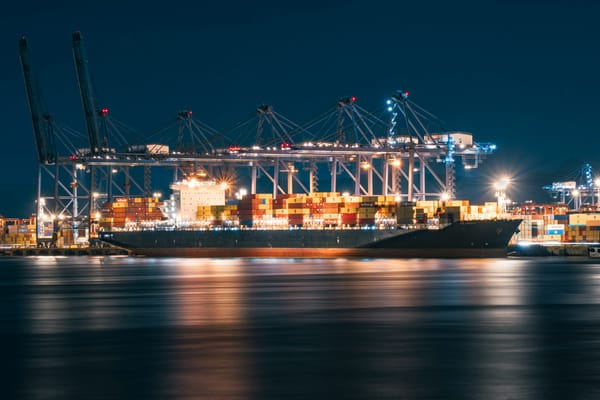The Beyond Trafficking and Slavery project concludes with a call for solidarity
Social justice campaigners must collaborate across sectors to confront the far right, GI-TOC warns global safeguards are not keeping pace with organized crime, and two thirds of children in South Sudan are engaged in child labour.

Anti-trafficking groups should work with other movements to challenge the far-right actors building power by scapegoating outsiders, according to the Beyond Trafficking and Slavery (BTS) project. To make genuine progress, organizations must unite to tackle exploitation, drawing inspiration from the cross-sector approach championed by community-driven movements, it says.
As BTS concludes its work at the end of this month, it is calling for greater “solidarity beyond silos”. Cross-movement organizing has been foundational to the most important social movements of the past two centuries, the authors note, and is now urgently needed to confront those who seek to divide and intimidate.
A meaningful starting point, they say, is to take seriously the principle that an injury to one is an injury to all, and act accordingly. This means focusing on shared struggles and common ground, thinking and acting across disparate issues, and forming communities between isolated and vulnerable individuals so they can better advance their collective goals.
Too often, the authors observe, actors have learnt to stay in their respective lanes, narrowly defining their work by issue or sector. While this is partly a product of funding structures that encourage specialization and competition rather than collaboration, the breaking down of complex structural injustices into issue-based silos has repeatedly proven to be a political dead end. Meanwhile, service providers and consultants who are dependent on government contracts or private commissions may become depoliticized and, in turn, depoliticize others.
This latest call builds on an argument BTS began developing last May, when it published its tenth anniversary feature series reflecting on the failure of the anti-trafficking field to achieve meaningful change, also acknowledging that critics of some anti-trafficking approaches, including BTS itself, have not yet succeeded in reframing the debate. To move forward, BTS argued, we must stop centering anti-trafficking as the primary focus and instead connect it to the broader web of movements fighting exploitation in all its forms.
In this new moment, BTS continues to encourage dialogue and strategic thinking about the ways in which communities from different locations and sectors can work more closely together. This includes exploring the limits of labour formalization and organized labour, learning from decades of feminist and anti-violence organizing, and understanding how marginalized communities are too often pitted against one another. The goal, they say, is to draw lessons from grassroots strategies and contribute to broad-based, progressive, bottom-up movements that can achieve real change.
Throughout the rest of November, BTS will publish a series of articles exploring what genuine alliance-building looks like in practice. Written by people with direct experience in organizing, resisting, and documenting injustice, these pieces will focus on concrete examples and lessons learned from the ground, rather than abstract theories. Contributors will reflect on both the barriers to building solidarity and the blind spots that can arise within movements. By sharing these perspectives, BTS hopes to spark new thinking on how we might reshape the terms of engagement moving forward.
Here’s a roundup of other noteworthy news and initiatives:
The 2025 Global Organized Crime Index, released yesterday by the Global Initiative Against Transnational Organized Crime, warns that global resilience is not keeping pace with the rapid progression of transnational crime. Drawing on five years of data from 193 countries, the report finds surging financial and cybercrime, growing roles for foreign and private-sector actors, and weakening institutional safeguards, highlighting a widening gap between governance and the increasingly adaptive nature of transnational crime.
The Human Trafficking Foundation has launched the 2025 edition of the Slavery and Trafficking Survivor Care Standards, developed with more than 150 experts and survivors to strengthen victim support across the UK. The updated framework expands guidance beyond the National Referral Mechanism, adds sections on work and education, children, and disability inclusion, and has been formally endorsed by UK, Northern Ireland, and Scottish ministers as a national benchmark for survivor-centered care.
Coffee Watch and partner NGOs have filed formal complaints under Germany’s Supply Chain Due Diligence Act against Nestlé, AmRest/Starbucks, and Dallmayr, alleging child labour, forced labour, and other serious human rights abuses on coffee farms in China, Mexico, Brazil, and Uganda. The groups urge German authorities to enforce the law amid political efforts to weaken it, warning that rollback would deny justice to exploited and trafficked workers across global coffee supply chains.
A new national study by South Sudan’s Ministry of Labour, Ministry of Gender, Child and Social Welfare, and Save the Children finds that nearly two thirds of children aged five to 17 are engaged in the worst forms of child labour, with rates reaching 90 per cent in some regions. The report links poverty, conflict, and lack of education to rising exploitation, and calls for urgent reforms to strengthen child protection systems and uphold every child’s right to safety and schooling.
The International Organization for Migration (IOM) and Human Concern International (HCI) have signed a US$1 million agreement to strengthen protection systems and deliver humanitarian aid to communities vulnerable to crisis, displacement, and human trafficking. Grounded in Islamic philanthropic principles, the partnership expands IOM’s faith-based collaborations to combat exploitation and support at-risk populations in countries including Bangladesh, Sudan, Libya, and Ukraine.
This commentary highlights the way in which California’s new Assembly Bill 1362, requiring foreign labour recruiters to register with the state, marks progress in preventing labour trafficking but leaves key gaps in protection. Advocates urge policymakers to expand the law’s coverage beyond certain visa categories, and strengthen oversight from recruitment through employment to ensure comprehensive safeguards for all migrant workers.
The UN Human Rights Council has opened applications for the next Special Rapporteur on contemporary forms of slavery and trafficking in persons, to be appointed at its 61st session in early 2026. The call invites qualified human rights experts with proven experience in anti-slavery and anti-trafficking work to apply by 8 December 2025.




